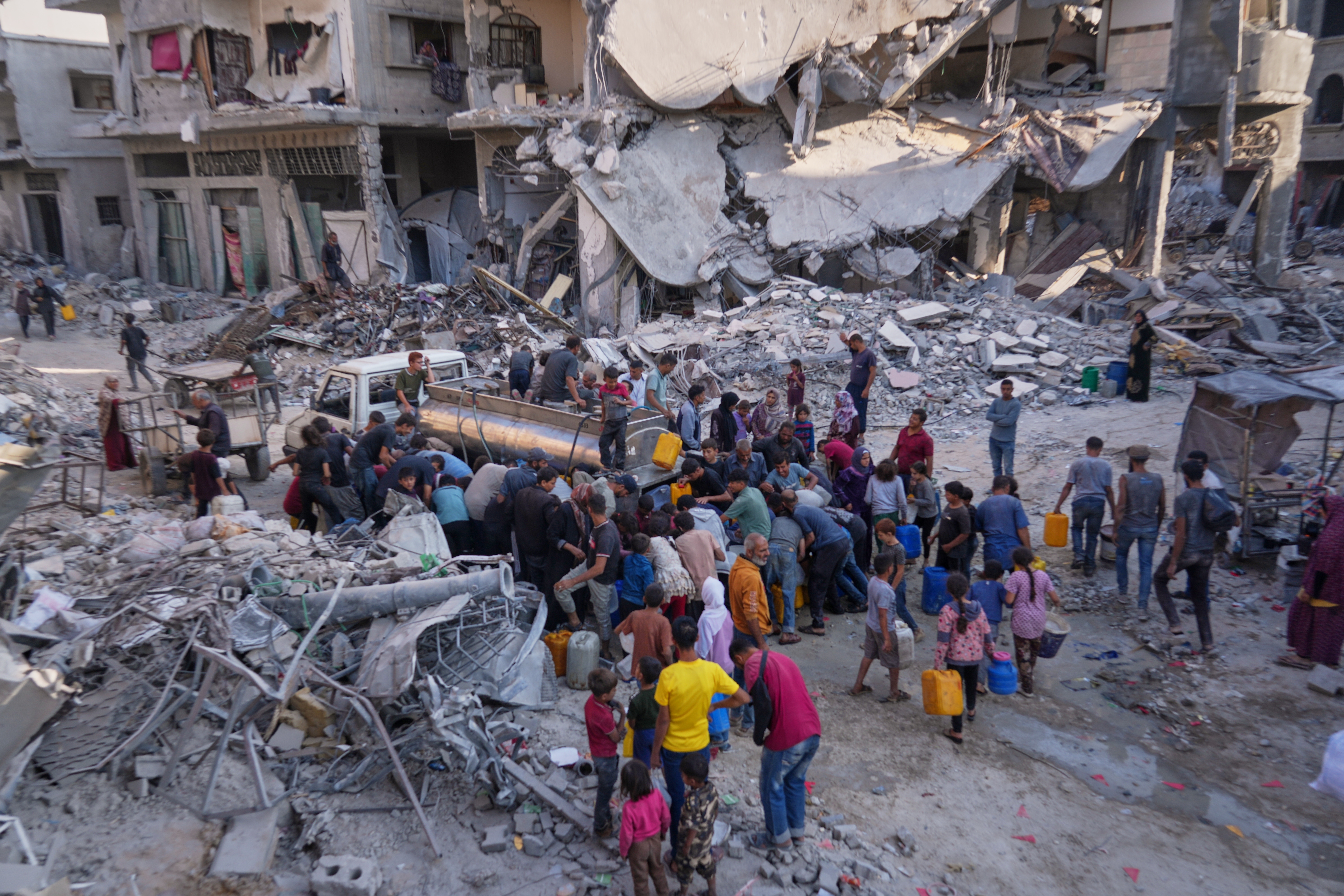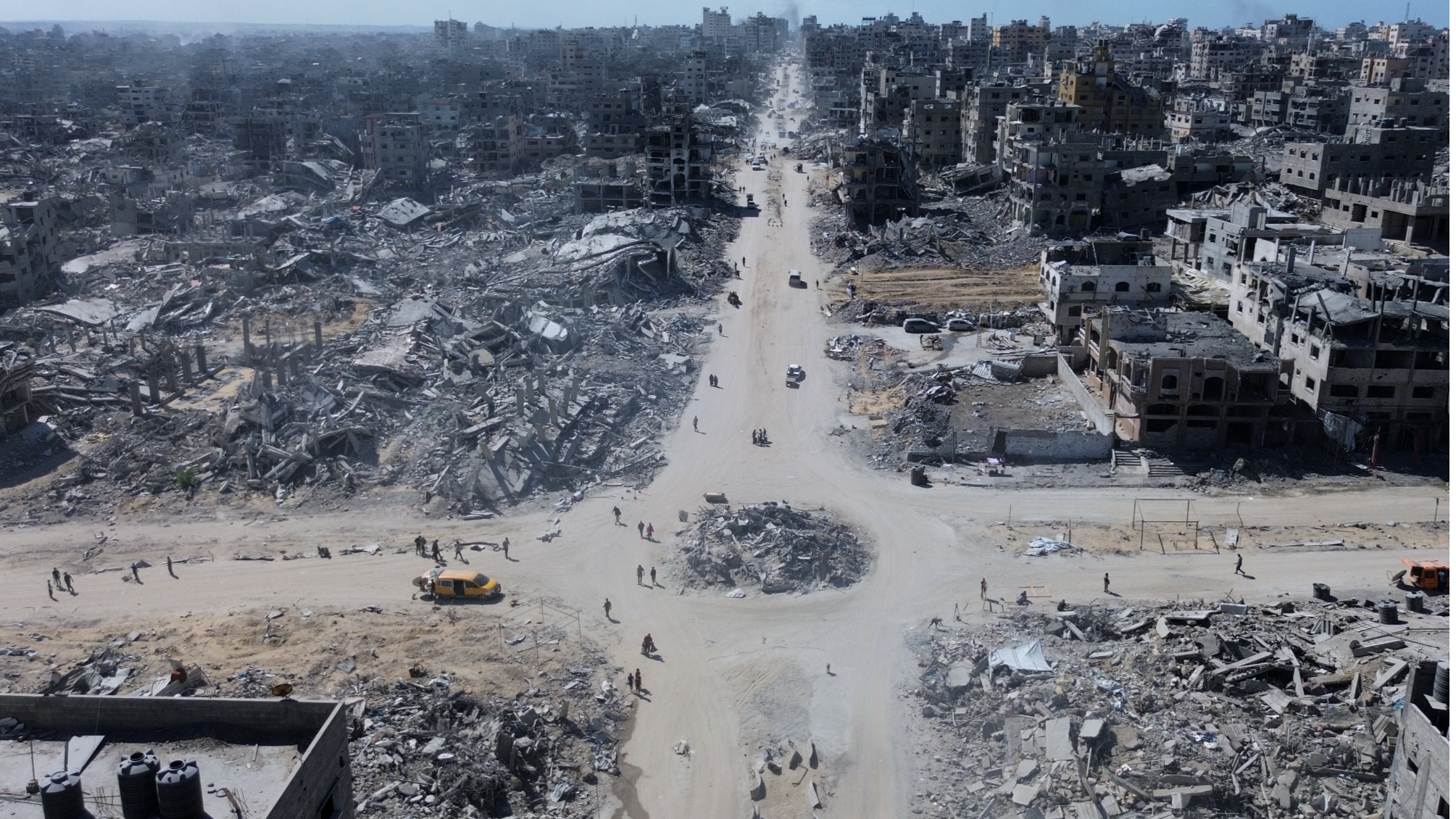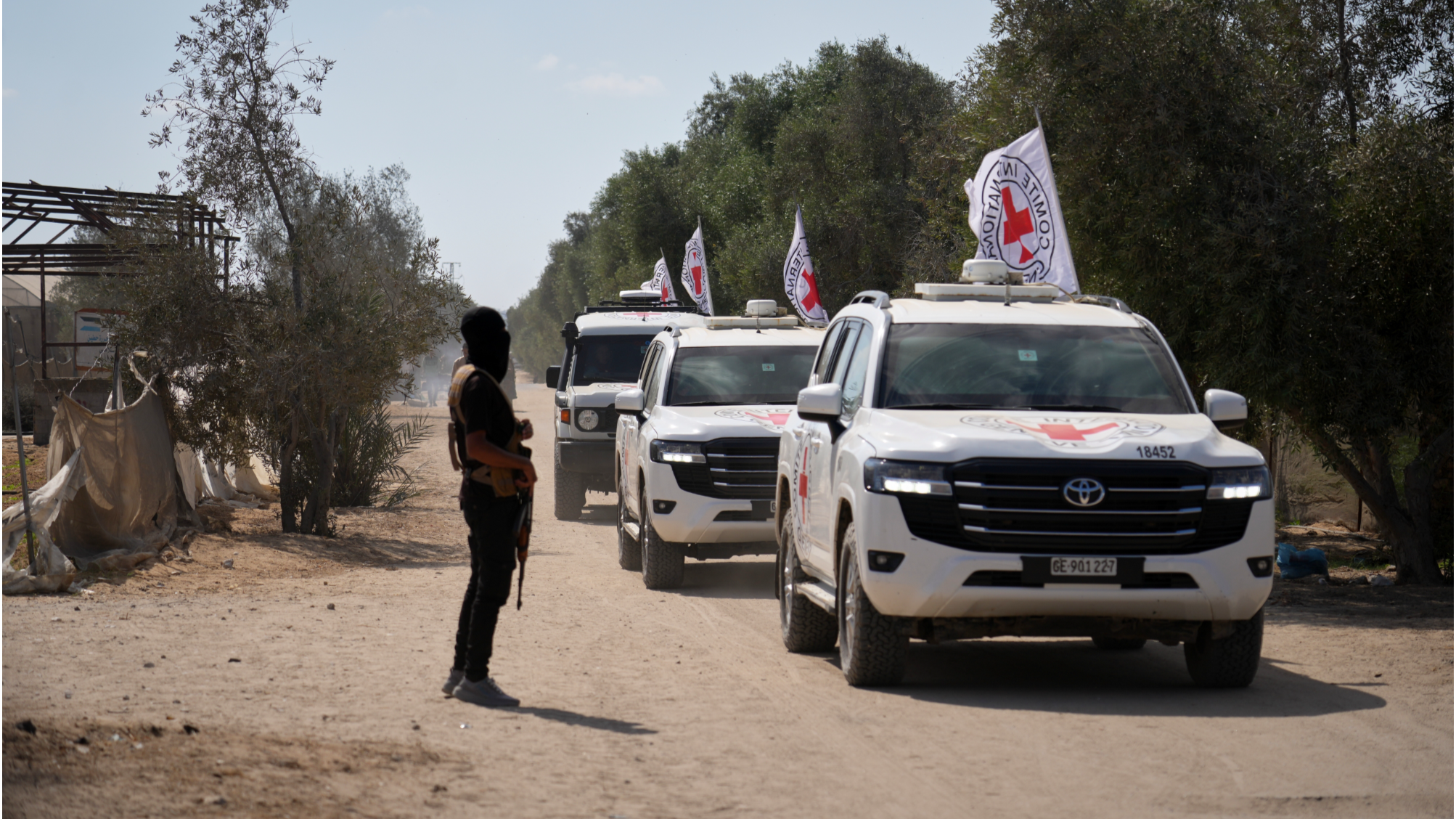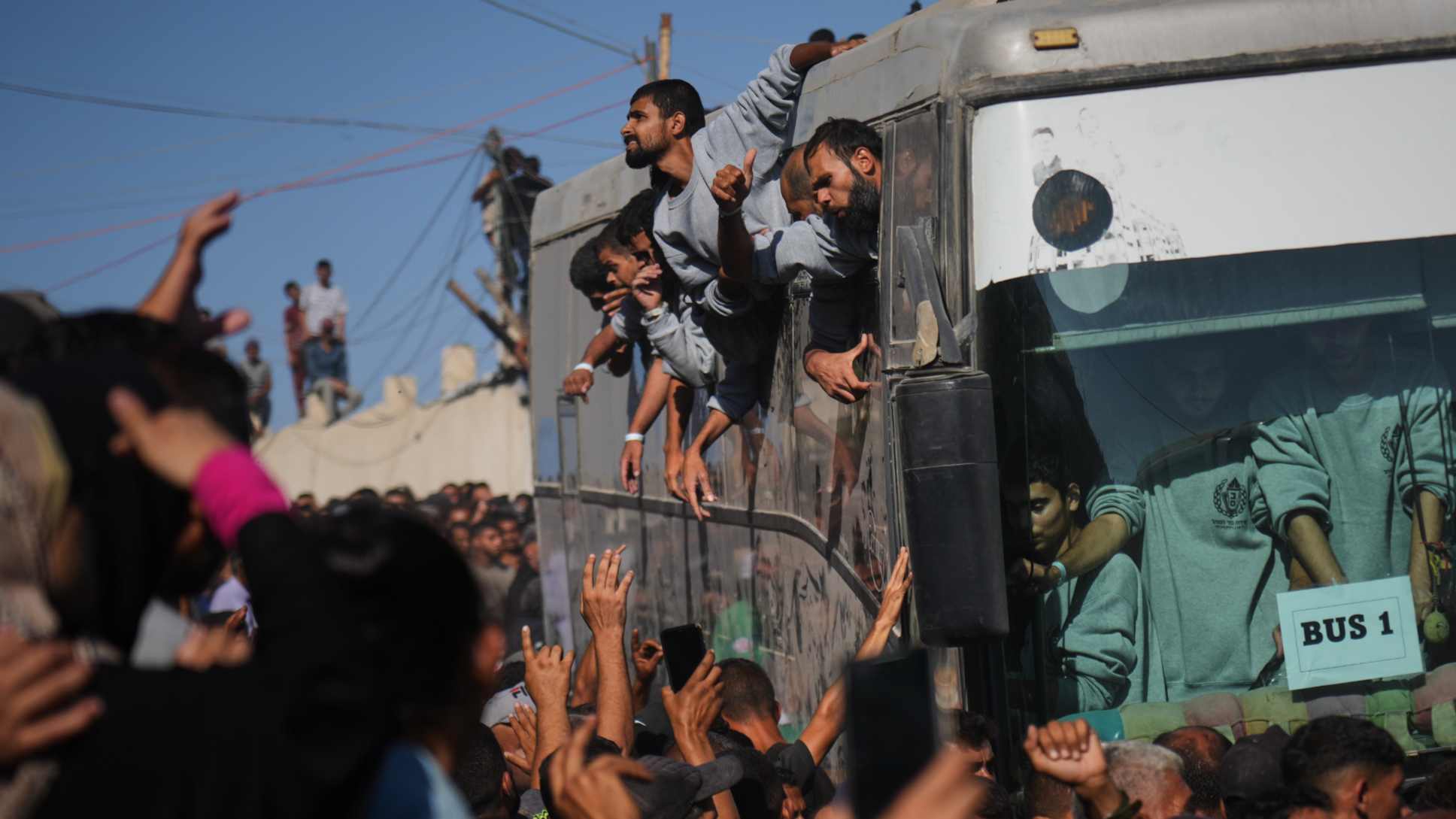
GAZA/RAMALLAH/CAIRO/UNITED NATION - Hamas said on Thursday that it is committed to implementing the ceasefire agreement and beginning the reconstruction of the Gaza Strip, while rejecting "any form of international guardianship over our people."
Zaher Jabarin, Hamas leader in the West Bank, said in a televised speech that the movement "is committed to implementing the agreement that ensures an end to the war, protects our people from aggression, and begins reconstruction."
In his address, Jabarin emphasized the need for the "right to self-determination" and "the establishment of an independent state."
"It is time to grant our people their right to self-determination and the establishment of their independent state," Jabarin said, adding that "the Palestinian state should no longer remain hostage to the blind bias in favor of the Israeli occupation."
"Whoever truly wants peace in the region should begin by implementing the international consensus on establishing the Palestinian state and resolving the issue of prisoners through the release of those still held in Israeli prisons without further wars," Jabarin noted.
Under the Israel-Hamas ceasefire agreement, which took effect on Friday, the first phase of the ceasefire includes Israeli troop withdrawals from Gaza City, Rafah, Khan Younis, and the north, the exchange of hostages and prisoners, and the opening of five crossings for aid.
Since Monday, Hamas has released 20 Israeli captives alive and handed over 10 hostage bodies, while Israel has freed around 2,000 Palestinian prisoners and detainees.

Recovery plan
Palestinian Prime Minister Mohammad Mustafa unveiled on Thursday a comprehensive plan for early recovery and long-term reconstruction in Gaza, outlining a five-year effort to rebuild the war-torn enclave.
Speaking at a meeting with international partners at the cabinet headquarters in the West Bank city of Ramallah, Mustafa said the Palestinian government has established a unified framework for reconstruction through the Gaza Recovery and Reconstruction Implementation Program, based on the Arab Plan for Recovery, Reconstruction, and Development in Gaza adopted at the Extraordinary Arab Summit in Cairo in March.
International assessments estimated that damages and losses from the two-year war in Gaza have exceeded $67 billion, Mustafa said.
"Therefore, the program sets a five-year timeframe of 67 billion dollars, encompassing 56 sub-programs in 18 sectors, including housing, social services, and infrastructure," he said.
According to Mustafa, the five-year program is divided into three phases: the first, a six-month emergency phase focusing on early recovery, valued at 3.5 billion dollars; the second, a three-year reconstruction and recovery phase, valued at approximately 30 billion dollars; and the third, the reconstruction phase.
The first phase includes rubble removal, restoration of infrastructure and essential services, transitional housing, cash assistance and job programs, support for small businesses and agriculture, reactivation of the banking system, and psychosocial and healthcare services.
Effective governance in Gaza is "a fundamental pillar of recovery and stability," the prime minister said. "Therefore, legitimate Palestinian institutions in Gaza will be reactivated in full accordance with national laws and the Palestinian Authority's public administration institutions."
The government will also strengthen political and territorial unity between Gaza and the West Bank, he said, reaffirming that security and effective governance in Gaza must be nationally owned and led, rooted in the Palestinian people.
Mustafa indicated that the Palestinian police and security forces will gradually operate in Gaza after the war.
ALSO READ: Israel asked to smoothen aid flow amid fraught ceasefire

Rafah crossing
Meanwhile, a Hamas delegation arrived in Cairo on Thursday for talks with Egyptian officials on Gaza's post-war security and the implementation of a ceasefire with Israel, Egyptian sources said.
The discussions center on deploying about 1,000 Palestinian security personnel -- trained in Egypt and Jordan -- to maintain order in Gaza under Palestinian Authority (PA) supervision, the sources told Xinhua on condition of anonymity. The plan is part of efforts to restore stability and establish PA control, they said.
Talks are also addressing Hamas's potential withdrawal from Gaza's security apparatus and the handover of its weapons under a U.S.-backed peace plan, the sources added.
Moreover, the sources also revealed that Israel has agreed to reopen the Palestinian side of the Rafah crossing on Sunday under EU monitoring and with a PA team present, allowing patients, the wounded, and travelers to cross in both directions.
Saudi broadcaster Al Arabiya reported that Cairo plans to host a broader Palestinian meeting to discuss forming a joint body to administer Gaza after the war. High-level delegations from Hamas and Islamic Jihad were due to hold separate talks with Egyptian mediators.

Aid truck
A whole convoy of aid trucks from the World Food Programme has managed to get to a warehouse in Gaza without being looted, and there has been a dramatic drop in looting incidents, a UN spokesperson said Thursday.
"We have seen the incidents of looting drop dramatically. And I think today and yesterday was a vast improvement in our ability to bring aid in safely from the crossings to the warehouses," said Stephane Dujarric, spokesperson for UN Secretary-General Antonio Guterres.
The UN Office for the Coordination of Humanitarian Affairs (OCHA), citing figures from Israeli authorities monitoring their controlled crossings, tallied 716 trucks on Wednesday, including 16 carrying fuel and gas.
OCHA said the trucks sent through were a combination of the commercial sector, bilateral donations and the UN-coordinated aid system.
The office said the world body and its partners are sending more supplies through the crossings, first offloading and then collecting payloads from inside Gaza.
OCHA said that teams from across the UN have finished clearing the main roads leading to the Erez and Zikim crossings in the north in anticipation of their potential re-opening, which would allow aid to be brought directly into northern Gaza.
On Thursday, teams were checking the Salah Ad Din Road, the main north-south artery beside the coastal Al Rasheed Road. The humanitarian community aimed to increase the roads available to its teams to move around within Gaza.
On Tuesday, 21 partners distributed nearly 960,000 meals through 175 kitchens, and bakeries supported by the United Nations and partners produced more than 100,000 bread bundles.
Trump threatens to Hamas
Trump on Thursday threatened to "go in and kill" Hamas members after a video surfaced showing gunmen allegedly linked to the group carrying out a public execution in Gaza just days after a ceasefire deal took effect.
"If Hamas continues to kill people in Gaza, which was not the Deal, we will have no choice but to go in and kill them," Trump wrote on Truth Social.
Trump told CNN on Wednesday that he would consider allowing Israeli Prime Minister Benjamin Netanyahu to resume military action in Gaza if Hamas refuses to abide by the ceasefire terms.
Asked what happens if Hamas refuses to disarm, Trump said: "Israel will return to those streets as soon as I say the word. If Israel could go in and knock the crap out of them, they'd do that."


